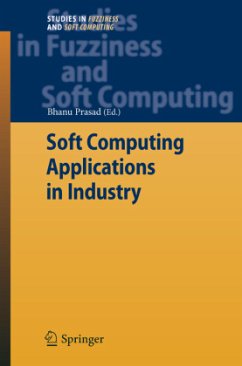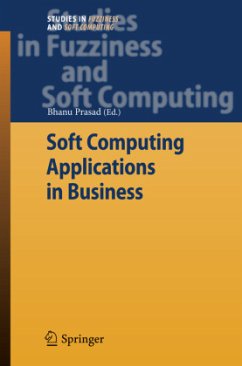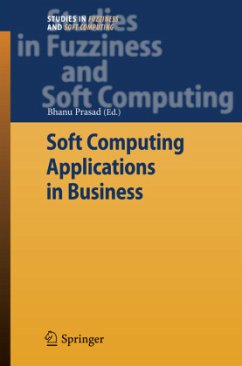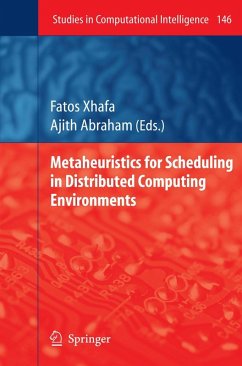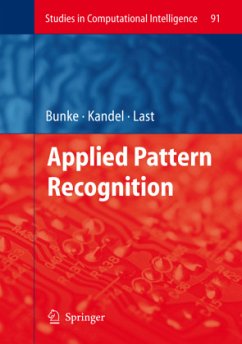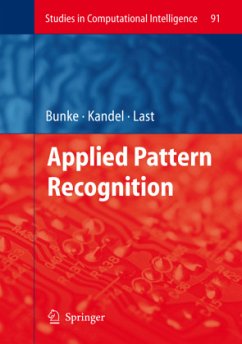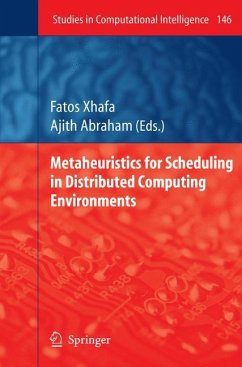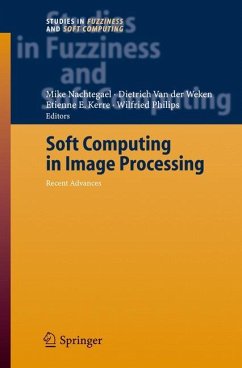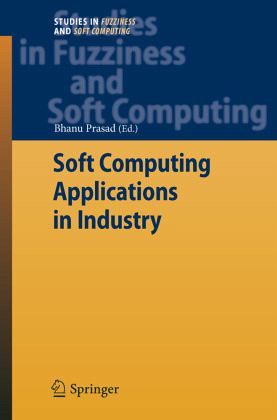
Soft Computing Applications in Industry
Versandkostenfrei!
Versandfertig in 6-10 Tagen
113,99 €
inkl. MwSt.

PAYBACK Punkte
57 °P sammeln!
Softcomputing techniques play a vital role in the industry. This book presents several important papers presented by some of the well-known scientists from all over the globe. The application domains discussed in this book include: agroecology, bioinformatics, branched fluid-transport network layout design, dam scheduling, data analysis and exploration, detection of phishing attacks, distributed terrestrial transportation, fault detection of motors, fault diagnosis of electronic circuits, fault diagnosis of power distribution systems, flood routing, hazard sensing, health care, industrial chem...
Softcomputing techniques play a vital role in the industry. This book presents several important papers presented by some of the well-known scientists from all over the globe. The application domains discussed in this book include: agroecology, bioinformatics, branched fluid-transport network layout design, dam scheduling, data analysis and exploration, detection of phishing attacks, distributed terrestrial transportation, fault detection of motors, fault diagnosis of electronic circuits, fault diagnosis of power distribution systems, flood routing, hazard sensing, health care, industrial chemical processes, knowledge management in software development, local multipoint distribution systems, missing data estimation, parameter calibration of rainfall intensity models, parameter identification for systems engineering, petroleum vessel mooring, query answering in P2P systems, real-time strategy games, robot control, satellite heat pipe design, monsoon rainfall forecasting, structural design, tool condition monitoring, vehicle routing, water network design, etc.
The softcomputing techniques presented in this book are on (or closely related to): ant-colony optimization, artificial immune systems, artificial neural networks, Bayesian models, case-based reasoning, clustering techniques, differential evolution, fuzzy classification, fuzzy neural networks, genetic algorithms, harmony search, hidden Markov models, locally weighted regression analysis, probabilistic principal component analysis, relevance vector machines, self-organizing maps, other machine learning and statistical techniques, and the combinations of the above techniques.
The softcomputing techniques presented in this book are on (or closely related to): ant-colony optimization, artificial immune systems, artificial neural networks, Bayesian models, case-based reasoning, clustering techniques, differential evolution, fuzzy classification, fuzzy neural networks, genetic algorithms, harmony search, hidden Markov models, locally weighted regression analysis, probabilistic principal component analysis, relevance vector machines, self-organizing maps, other machine learning and statistical techniques, and the combinations of the above techniques.





